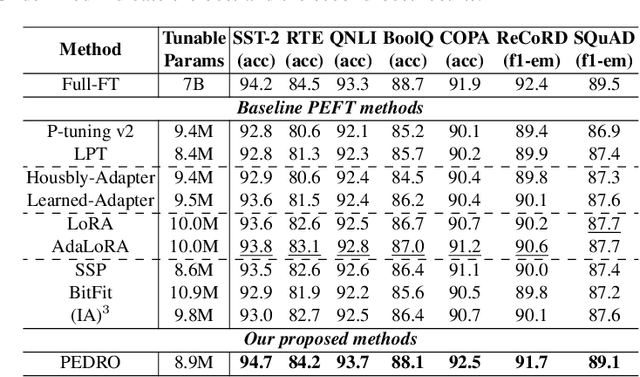PEDRO: Parameter-Efficient Fine-tuning with Prompt DEpenDent Representation MOdification
Paper and Code
Sep 26, 2024



Due to their substantial sizes, large language models (LLMs) are typically deployed within a single-backbone multi-tenant framework. In this setup, a single instance of an LLM backbone must cater to multiple users or tasks through the application of various parameter-efficient fine-tuning (PEFT) models. Despite the availability of numerous effective PEFT techniques such as LoRA, there remains a need for a PEFT approach that achieves both high efficiency during inference and competitive performance on downstream tasks. In this research, we introduce a new and straightforward PEFT methodology named \underline{P}rompt D\underline{E}pen\underline{D}ent \underline{R}epresentation M\underline{O}dification (PEDRO). The proposed method involves integrating a lightweight vector generator into each Transformer layer, which generates vectors contingent upon the input prompts. These vectors then modify the hidden representations created by the LLM through a dot product operation, thereby influencing the semantic output and generated content of the model. Extensive experimentation across a variety of tasks indicates that: (a) PEDRO surpasses recent PEFT benchmarks when using a similar number of tunable parameters. (b) Under the single-backbone multi-tenant deployment model, PEDRO exhibits superior efficiency compared to LoRA, indicating significant industrial potential.
 Add to Chrome
Add to Chrome Add to Firefox
Add to Firefox Add to Edge
Add to Edge